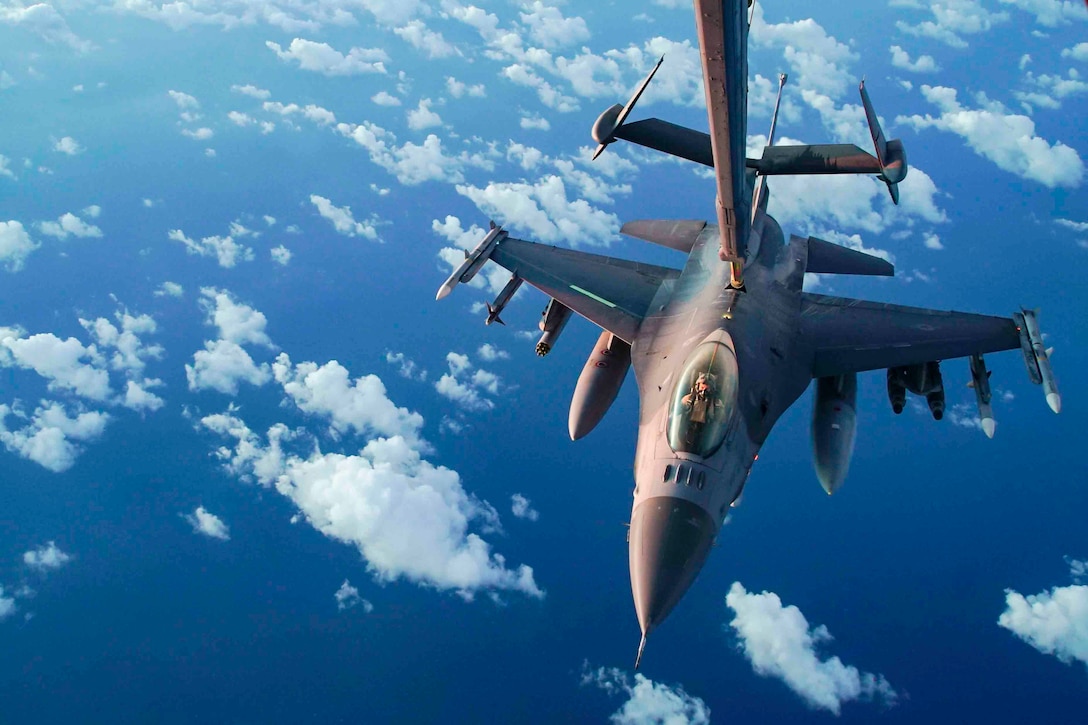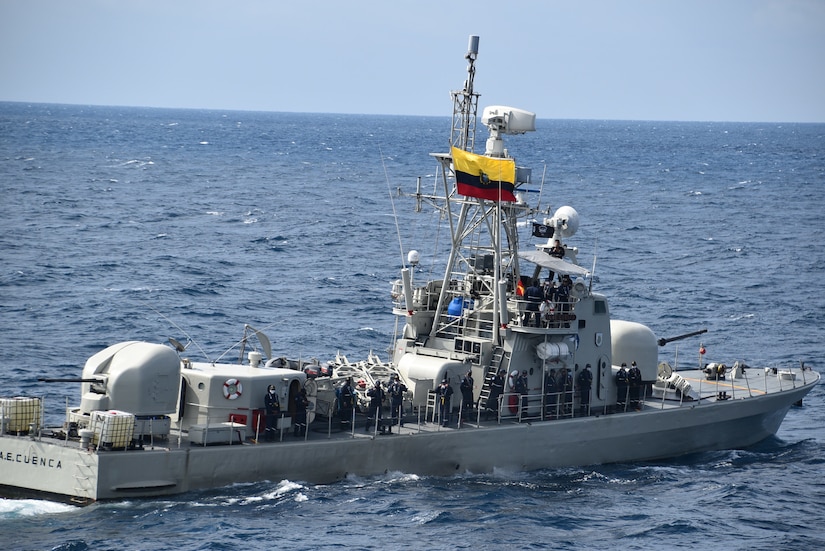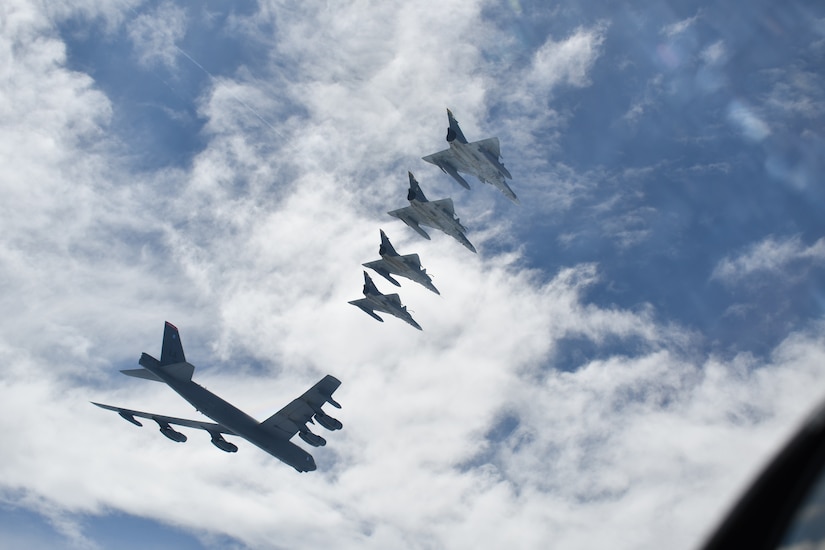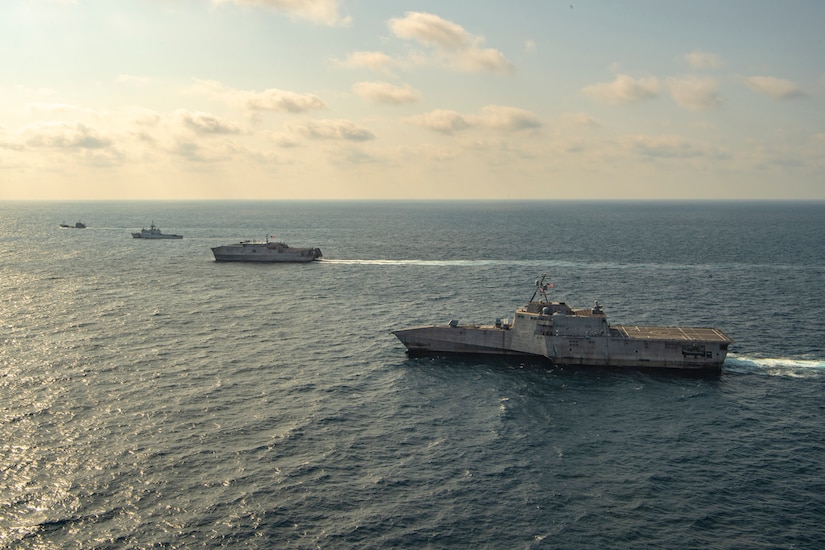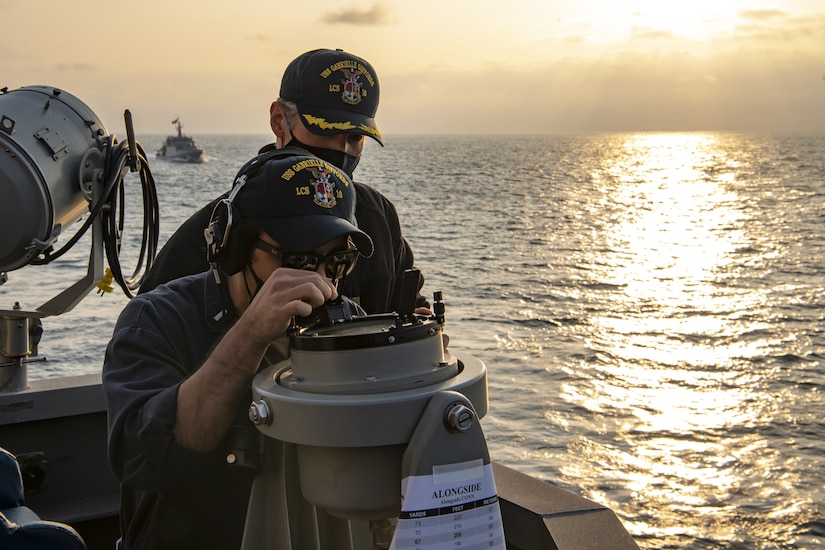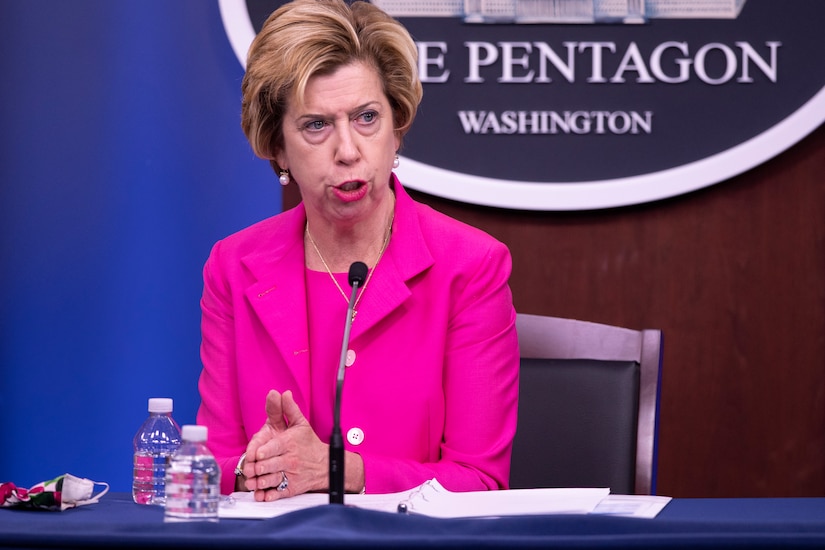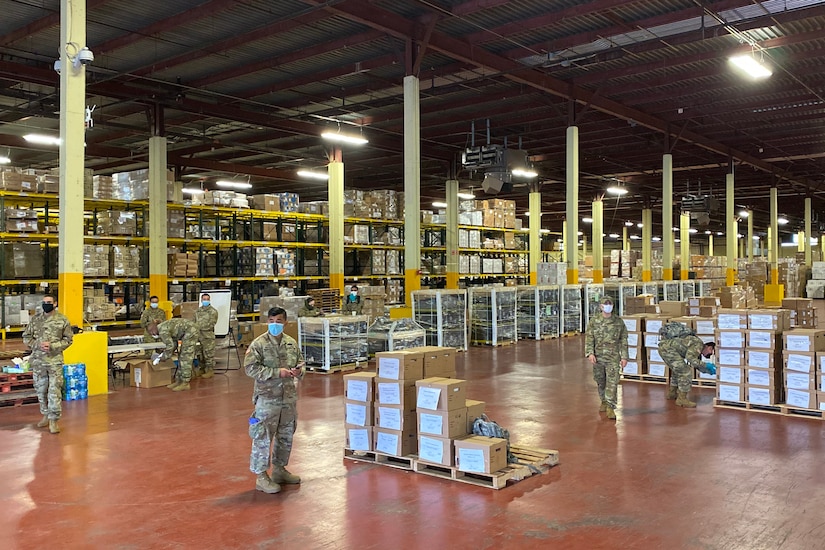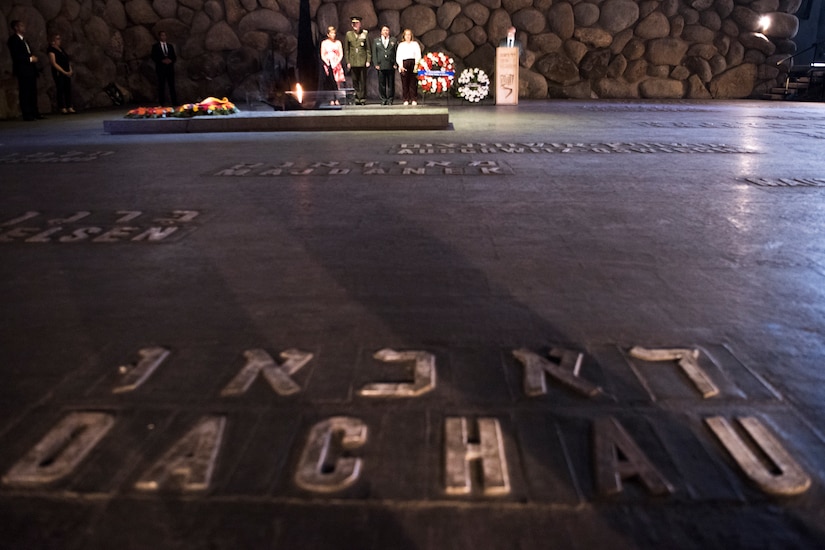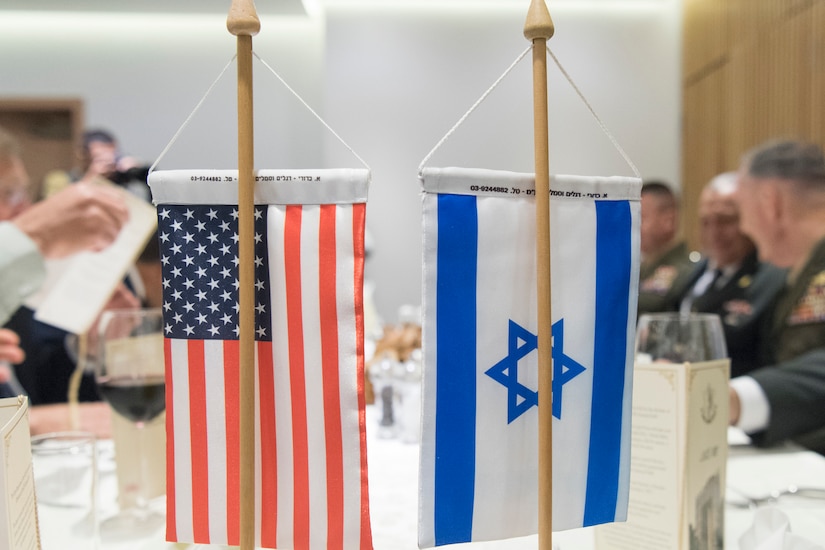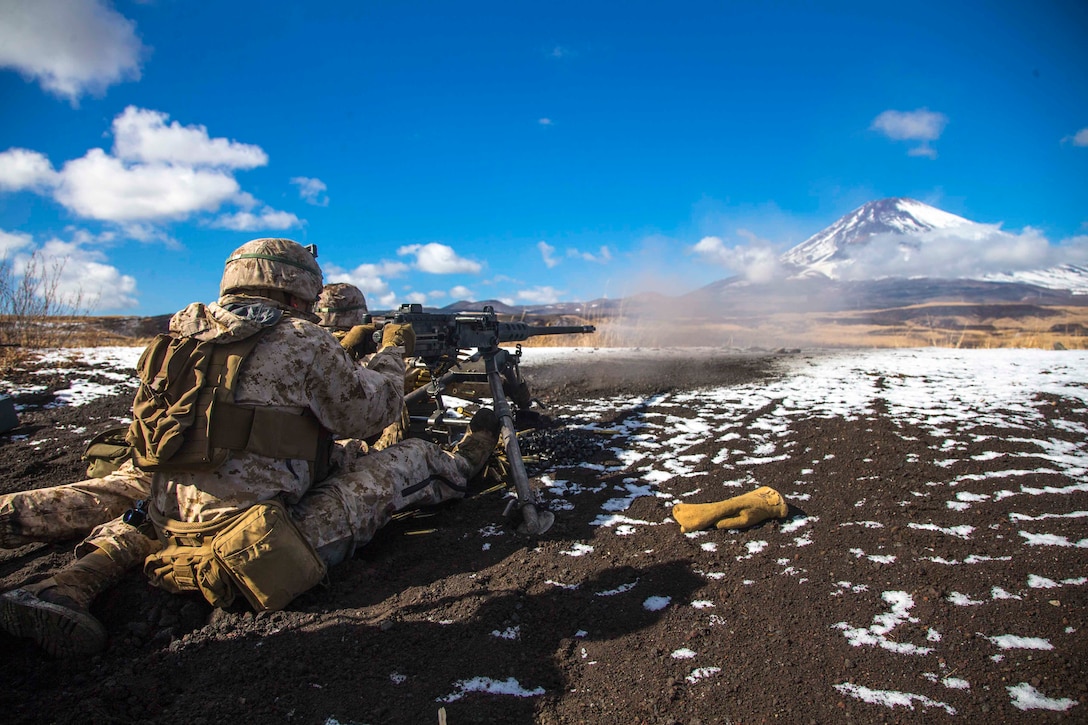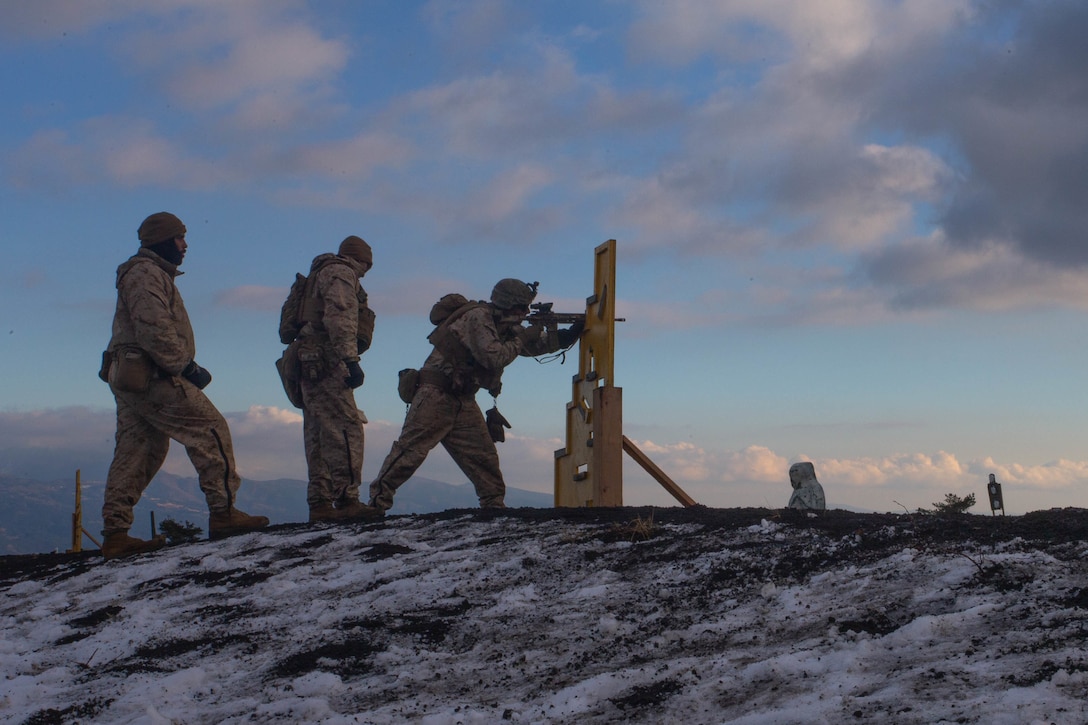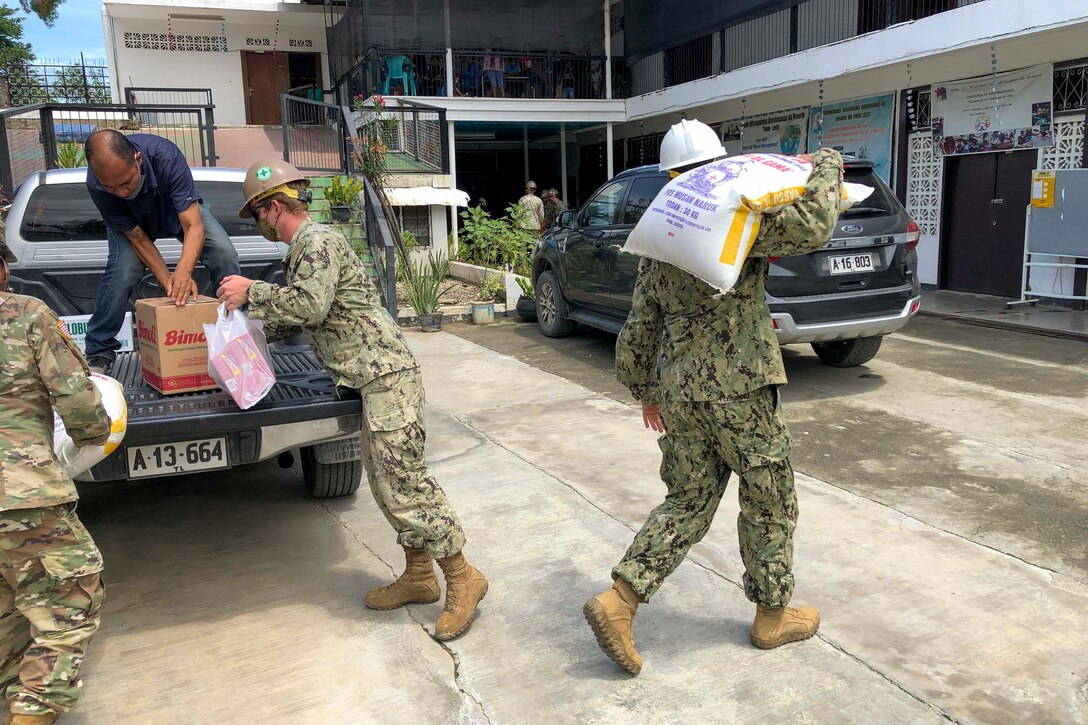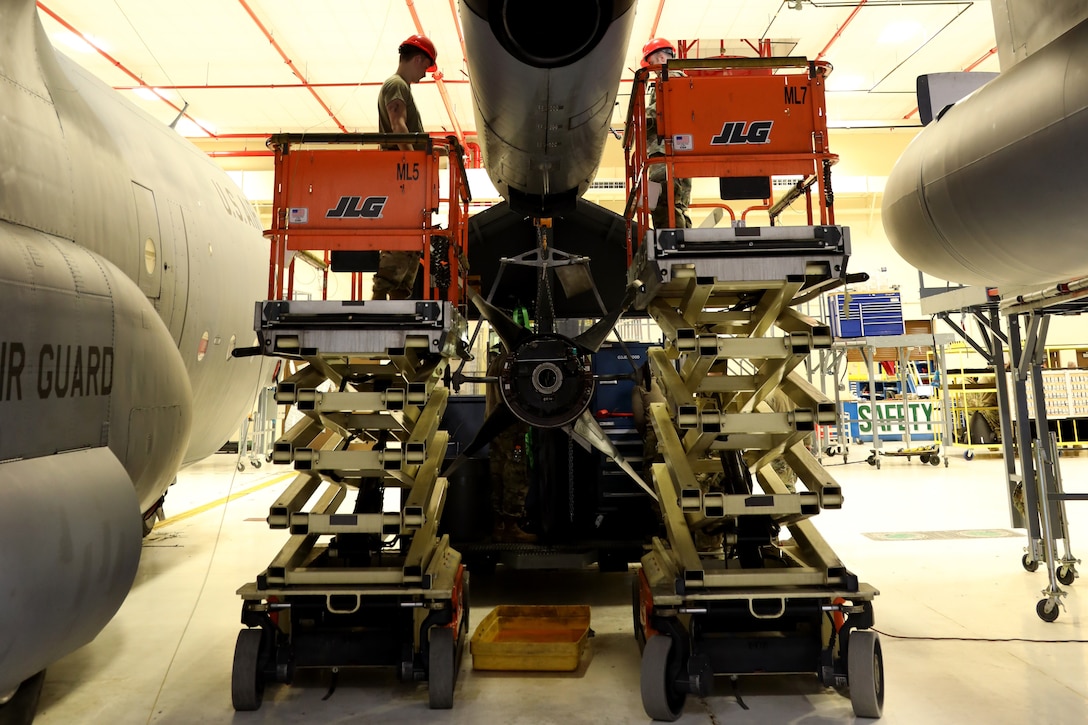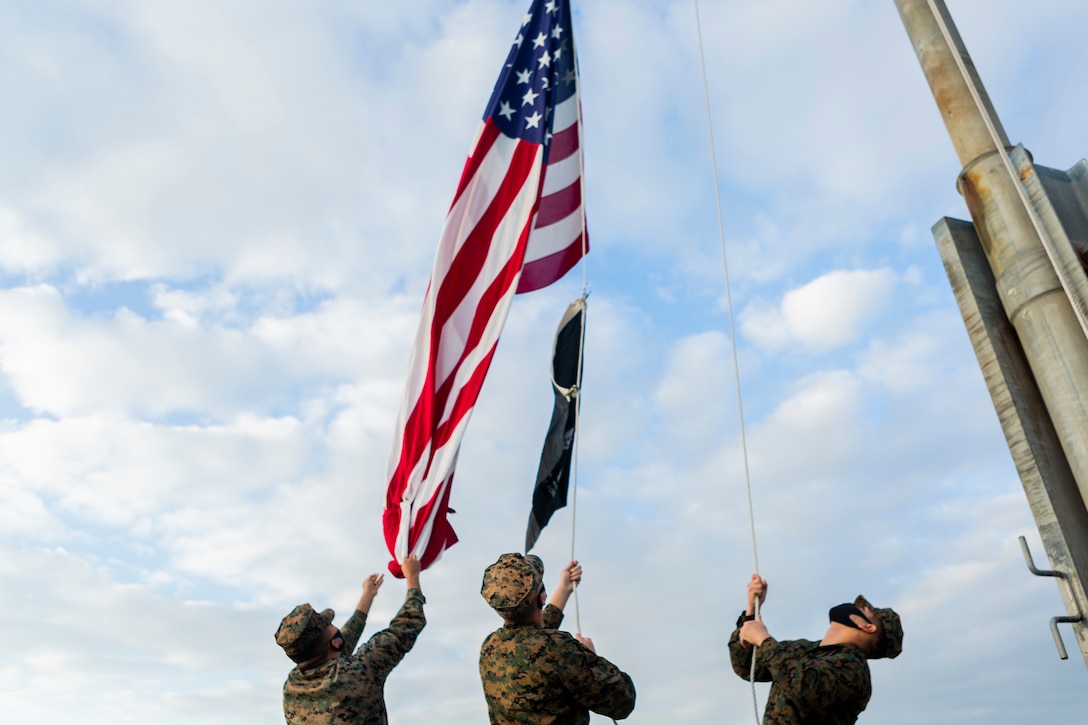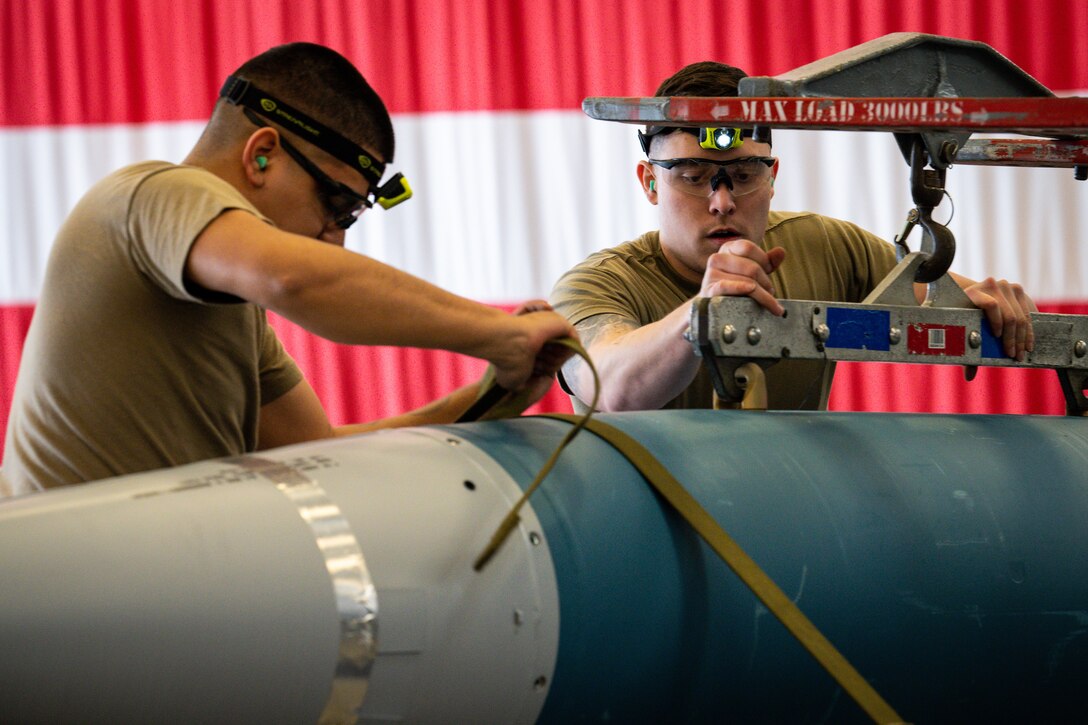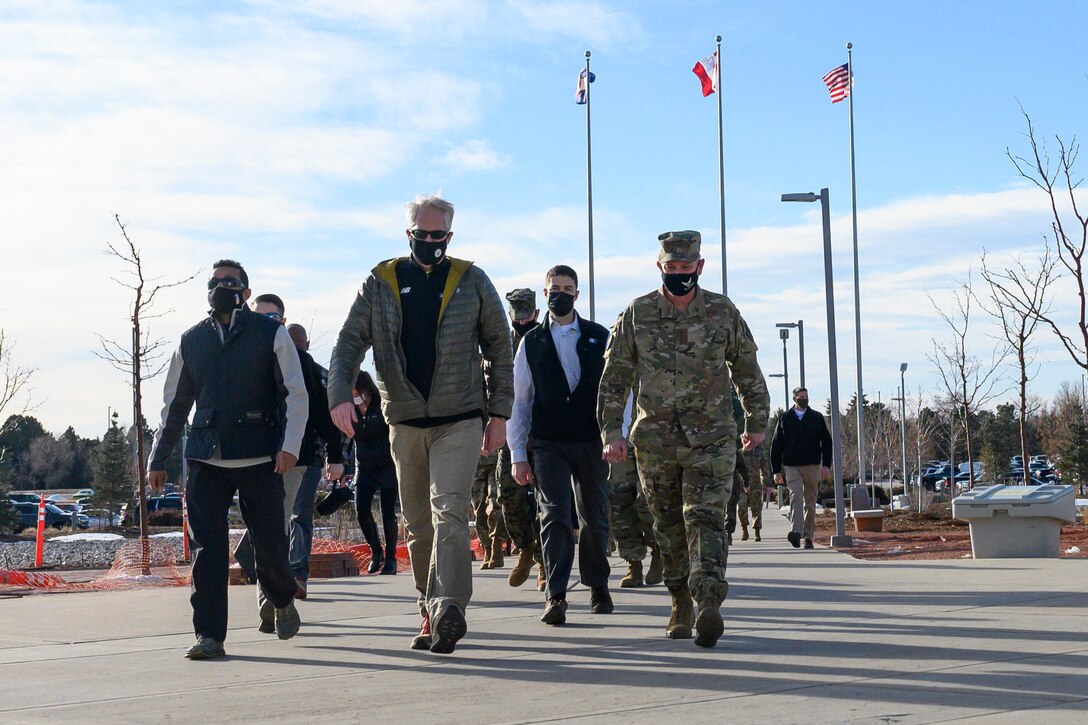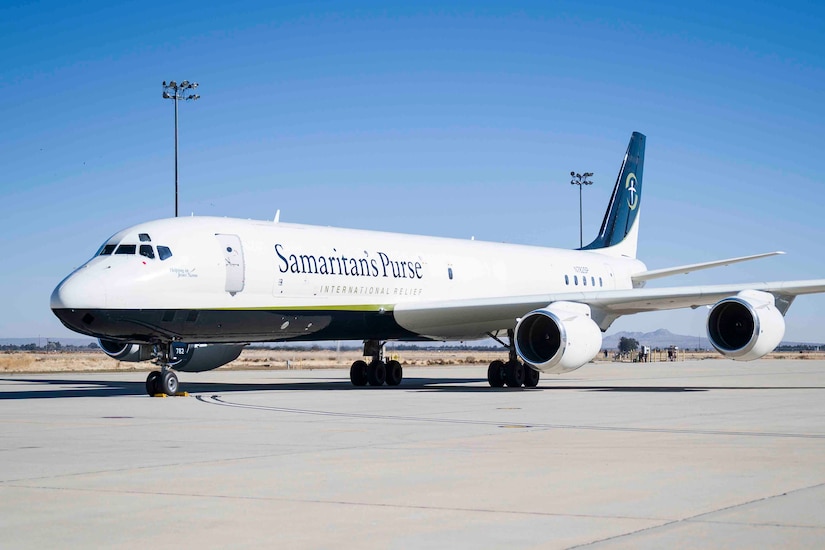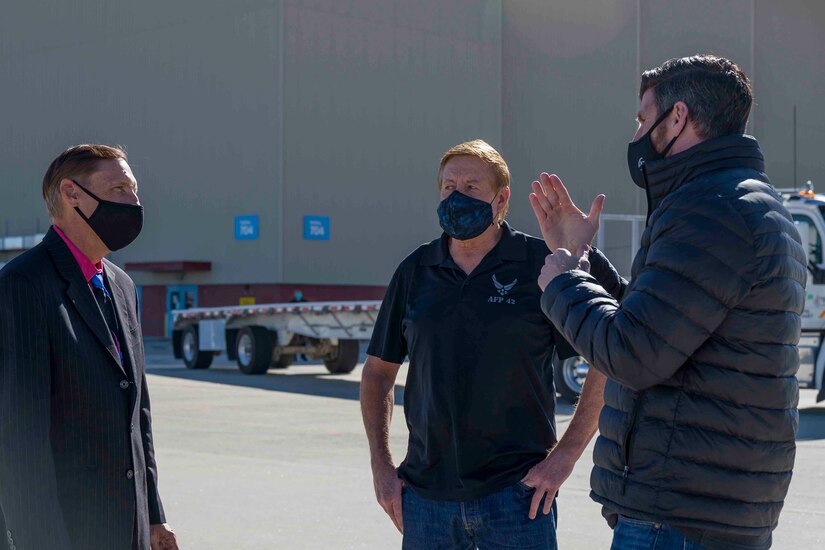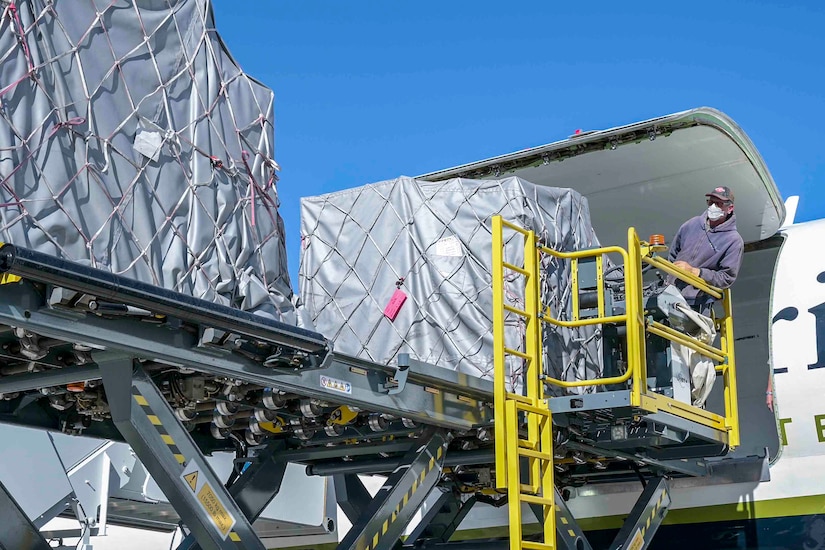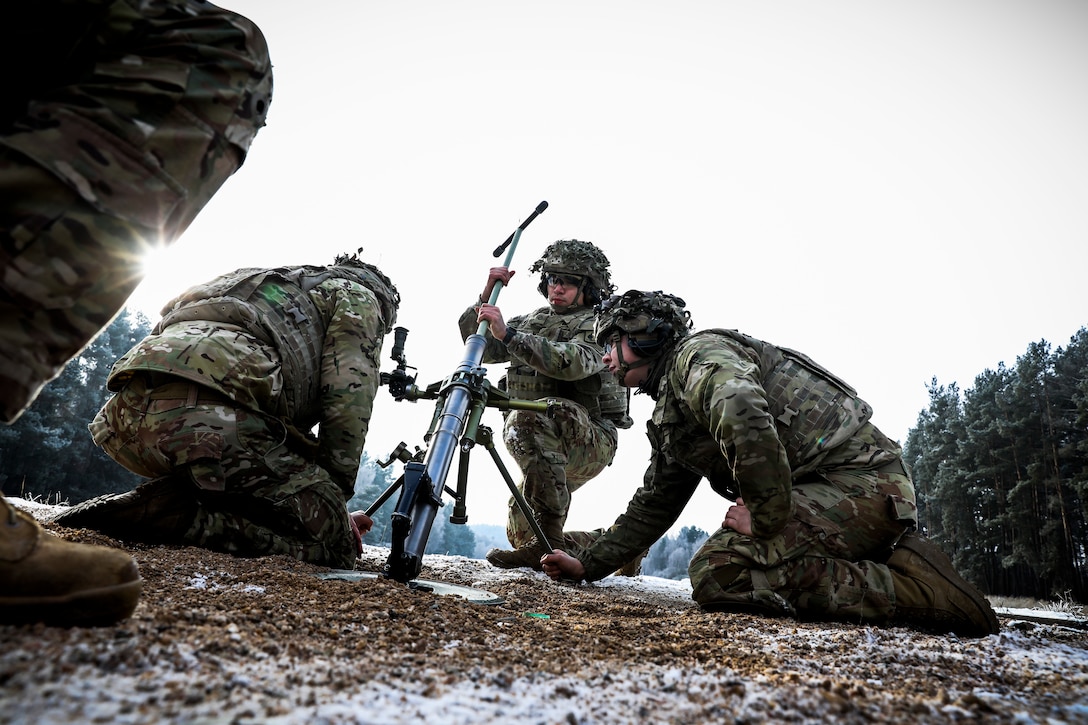Jan. 14, 2021
Acting Secretary of Defense Chris Miller
ACTING SECRETARY OF DEFENSE CHRISTOPHER C. MILLER:
Okay, are you guys ready? My statement is just, I made some notes. I
went out, you know, met with the General VanHerck today, and his team.
Key tasks were, one, kind of get an update on, um, state of homeland
defense, two, make sure that we were synced on not just the inauguration
threat, because that’s really like…but at this point there’s a machine
that’s cranking on that, but just made it…wanted to talk about the rest
of the country, you know, and uh, then listened to his team on the stuff
that they’re doing. They’re doing some really, really innovative stuff
about, you know, competition and how we do things below the threshold
of armed conflict, which I think is kind of really, really important.
And, uh, it’s kind of the future of the department, even though a lot
of people just want to continue doing the same old thing again and
again. I think that’s the definition of insanity, isn’t it? Oh, did I
say that out loud? Uh, so, and then, one of our key things that we
wanted to do when we got here was, recognize transnational threats,
counter narcotics, human trafficking, all that stuff, which, for the
longest time was like, oh we have a program for this, a program for…It’s
all…it’s…you all know at this point it’s international. Fentanyl coming
in from China, has a component with human smuggling and all that. And
one of the things we wanted to try to do was, kind of…not refocus, but
there was a concern that we probably went too far on focusing on
INDO-PACOM and China, trying to bring it back a little bit, recognize
like, wow, NORTHCOM, SOUTHCOM, even AFRICOM has some real, significant
challenges and also, just to recognize, hey, we probably need to look at
these things globally as opposed to, you know, one, one area. So I had a
really good conversation about that with him. And that was kind of the
intent. Let’s see…I think I covered all my talking points.
[Crosstalk]
Q: So the D.C. Guard, said that on the 12th, they got authorization
to be armed in support of the Capitol Police, protect the Capitol,
members of Congress. How was that authority passed down? From whom to
whom…
ASD MILLER: Right, right, very typical, very standard, typical thing.
I felt strongly that, you know, it’s easier to just keep everything at
my level and, like, I own it all, but that’s not how we work. And, at
least, my upbringing was, you want to get your authorities. I have
responsibility for everything, remember, if something goes wrong, I own
it. Completely, 110 percent. But the authorities, you want to push
down, where the people on the ground that are seeing things happen—when
I’m sitting at the Pentagon, or in my plane. So I made that decision to
push it down to, uh, Secretary of the Army McCarthy, who’s kind of down
there on the ground, so that they could move faster.
Q: Is that the call that you took during the briefing at the Tennessee National Guard?
A/SEC. MILLER: I don’t remember.
Q: Gen Fenton had a phone, came up and you were talking, and he said, was that…
A/SEC. MILLER: I think it was.
[Crosstalk]
A/SEC. MILLER: Oh yeah, right, so that was…you know, some people,
some of the lawyers were like, oh my gosh, don’t do it, I’m like no, we
trust our people, you gotta have them have what they need to move
faster. And then, of course, and then my thing is like, you’ve got your
left and your right limits. If you’re not comfortable, call me, I’ll
give you some guides, but otherwise, get going and move faster. Yeah?
Q: Are you seeking any additional authorities for NORTHCOM for next week?
A/SEC. MILLER: No, they got everything they need. That was one of the
conversations that we had. “Hey do you need anything?”…We talked
through some scenarios, obviously. Yes ma’am?
Q: Um, yeah so I guess…at NORTHCOM, like what were you hoping to see? What…
A/SEC. MILLER: Uh, I needed to look the commander in the eye,
because, you know, the president, SecDef, me…I, whatever the correct
English is, you guys can clean that up. Should have paid more attention
in high school. My wife would be ashamed of me not knowing the proper
preposition—and then, uh General VanHerck. So, you know, you just, I
said it before, you can have VTCs all day long, you know, but you wanna,
like, I wanted to look the guy in the eye and get a sense for his soul
and I think he probably needed to do that for me as well. So, you know,
that was why I really felt it important to go out and sit down and have a
cup of coffee with him, talk about it, small group, think through it,
make sure we, kinda, had that mind meld.
Q: What’s the most important thing that you’ve learned about Russian activity beneath the threshold of armed conflict?
A/SEC. MILLER: Russian? I think they’re extremely…uh…I have
professional respect for how they do things…I think they’re played a
really bad hand of card very, very well. Declining population, single
-- single source of economic revenue through natural resources. I kind
of, you know, like professionally I’m like, wow, they’re doing pretty
well, and they’re using a lot of irregular warfare concepts,
information, all this stuff, in a way that, you know, like…good on them.
[Crosstalk]
Q: What is the most…the biggest challenge for the Department of Defense to fix, that you’ve learned about?
A/SEC. MILLER: The biggest?
Q: Yeah
A/SEC. MILLER: What do I think? I think it’s changing our mindset
that is focused on…everybody says, ‘oh, all we’ve been focusing on is
counter violent extremism, and the Chinese stole a march on
us’…Historians will figure that one out…I think it’s not accurate. I
think the biggest thing is, we have to come out of the mindset of the
Cold War. I know we had that period, but big -- big units, big
high-dollar weapons systems, you know, just this huge enormous complex.
I think the key thing we need to do is we need to start paying
attention. That’s why it was so cool at NORTHCOM, like, since they
don’t get a lot of money, guess where they put their emphasis? What’s
between your ears. And the information environment, domain awareness,
using commercial stuff, you know, public-private partnership. That’s
the future, you know. But still, it’s like no, we need to buy this many
more…and those programs, you see them. Trillions of dollars over the
course of…I’m like, come on. So I still think we have a hangover on a
lot of that…high tech, very expensive weapons systems. And we need to
go smaller, swarmy, mass over…quantity over quality, in some cases.
That was my thinking.
[Crosstalk]
Q: I wanted to ask you…Joint Strike Fighter?
A/SEC. MILLER: Which one? F-35?
Q: Yep…say nothing of the littoral combat ship. It’s like the list
of flawed acquisition programs…seems endless to me. What is your
takeaway about these programs and the Pentagon’s acquisition process?
A/SEC. MILLER: I so…I mean, I cannot wait to leave this job, believe
me. But part of me is like, I would have loved to have gotten involved
in the acquisition process and try…and you know, talk about wicked
problem. I wanted to take that one on….F-35s, the case study.
Although, I gotta tell you, yesterday we were talking to some guy, some
lieutenant colonel, or colonel, said ‘what are you flying?’ Said
‘F-35,’ I was like that’s a piece of…and he was like…and he laughed, and
I was like, ‘no seriously, tell me about it,’ and he was…an F-16 guy,
F-35, he said…’unbelievable aircraft,’ I’m not…I…that investment,
for…that capability, that we’re never supposed to use, ‘well, we have to
deter, blah blah bluh blah…Are we fifth generation? You know we…I
think it’s hilarious, you know, right now, you know, ‘well we need to
invest in the sixth generation,’ I’m like, we have created a monster,
but you know that.
Q: Thank you.
